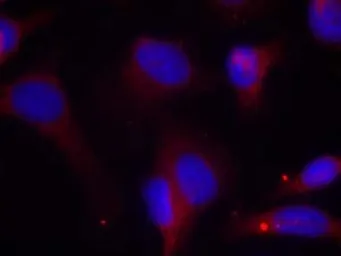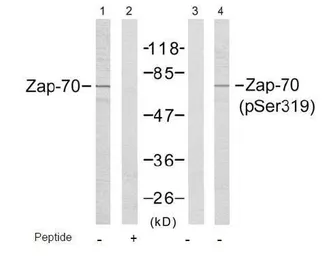ZAP70 (phospho Tyr319) antibody
Cat. No. GTX38562
Cat. No. GTX38562
-
HostRabbit
-
ClonalityPolyclonal
-
IsotypeIgG
-
ApplicationsWB ICC/IF
-
ReactivityHuman

